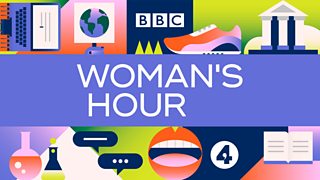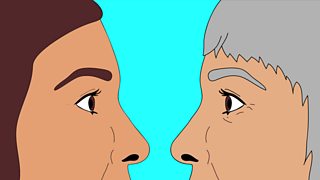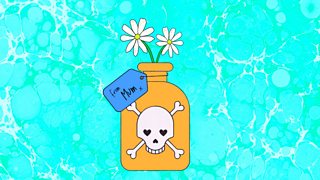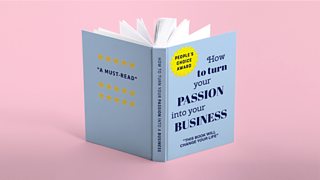‘We’d just get destroyed verbally’: Getting over my narcissistic mother
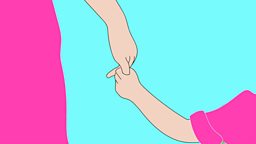
It wasn’t until Louise had her own children that she began to question how her mother had raised her.
While researching different parenting styles, she learnt about the impact of having a narcissistic mother. A narcissist is someone who has an unreasonably high sense of self-importance and seeks attention and admiration, while often ignoring the feelings of others.
Educating herself about narcissism has allowed Louise to make sense of how she was raised and avoid repeating toxic parenting traits with her own children.
Louise shared her story as part of Woman’s Hour’s series on narcissistic mothers. The names in the article have been changed to protect their identities.
Read on for Louise’s story.
‘I hung on every word my mum said because that’s all I knew. It was the law.’
‘I lived through seven years of thinking that I should parent the way she parented. It took me having my second child to be like: ‘No, this isn’t right. This is not how a mum treats them.’ Because I love mine and I want to hug them,’ says Louise, ‘whereas she never did that.’
Looking back, she was just being nasty and negative to keep me on side, so that I didn't have anyone.
Growing up, Louise says her mother was a critical and controlling authority in the house.
‘We would just get destroyed verbally: ‘We're dirty children, we don't care, there's no respect.’ And this is under the age of eight.
‘And then as a teenager it only got worse. Because I'd not been parented correctly under 10, I had no tools to deal with whatever came. I was a horrible teenager; I had a lot to deal with. But then as an adult, when I dissected it, it's no wonder I acted the way I did.’
Narcissists can be highly critical of others. Louise says this is a trait she now sees in her mother, and which isolated her growing up.
‘From what I've learned about narcissists, they try to separate their herd, their children, away from other people. And they'll say everything negative about everyone else, because they want to keep them close. They want to keep them on their team, on their side, like it's a war.
‘As a teen, I started to notice it when my cousins and second cousins were becoming teachers and hairdressers, and they'd go to university, and they'd go travelling, and obviously I wasn't. She would say bad things about what they were doing.
‘At the time I thought: ‘Oh, she's doing this to make me feel better because I'm not going anywhere’. Looking back, she was just being nasty and negative to keep me on side, so that I didn't have anyone.
‘All those cousins and second cousins that I should be close with - like a group support network, we're all about the same age, doing the same thing - I didn't have.’

‘Everything was just ringing so loud in my head. And I was like: ‘My mum's a narcissist.’’
While researching different parenting methods after she had her second child, Louise came across videos explaining the characteristics of people with narcissistic personality disorder.
My husband would watch me verbally destroy my daughter.
‘The woman that did the videos was narrating about a narcissistic mother and how they talk. She was doing a scenario, a make-believe thing, and I was like: ‘Oh my God, that’s what I lived through.’’
Louise’s research into narcissism made her reflect on how her mother’s influence and parenting style had loomed large during the early years of her first child's life.
‘My husband had ideas to send her to a certain nursery. And I was like: ‘No, we're going to send her to my nursery because that’s where my mum sent me. And that’s where she's going because my mum will love that she'll go to the same nursery.’’
Louise says she would also repeat the same harsh outbursts that she'd experienced as a child: ‘My husband would watch me verbally destroy my daughter. And I’d verbally destroy him for small things like not sterilising bottles or not putting socks away, something silly.’
After these outbursts, Louise realised that she acted as though nothing had happened.
‘It’s shame, isn’t it? You cover it with masking and faking. So, the minute I know I've done something wrong, it just turns to me being like: ‘Oh, let's just go make a cake,’ or something that normal families do.
‘This is where my light bulb moment comes from’, says Louise, ‘That I'm seeing history repeat itself. I can't have this; it has to stop.’

'It just opened my mind, because I'd educated myself for the first time. I listened to someone else - not my mum.'
After realising that she was displaying the traits of her mother, Louise started doing ‘gentle parenting’ and absolutely loves it. The term ‘gentle parenting’ was first coined by Sarah Ockwell-Smith in The Gentle Parenting Book in 2016. ‘Gentle parents’ say they look for the motivations behind their child’s challenging behaviour rather than simply correcting it.
I'd cry, he'd cry, I'd get angry, he’d comfort me.
‘I've done so much research on disciplines, on how to deal with children, how to understand their emotions’, says Louise.
Learning about narcissism has at times been upsetting, Louise says. Her husband, Ed, says she can be hard on herself: 'She’s never been used to being asked: ‘How do you feel?’’
Louise credits her husband’s support for helping her confront her mother's influence.
‘The minute I discovered the hashtag #narcissist, he was there with me, googling and printing things. The kids would go to bed, and we'd have quiet time, and we'd talk and get it all out. And I'd cry, he'd cry, I'd get angry, he’d comfort me.’
‘I can’t see my nieces and nephews. It’s awful.’
Coming to terms with her mother’s narcissism has caused a rift between her and her siblings, according to Louise.
I can't repeat the behaviours I have repeated on to my children.
As the eldest child, she claims she took the brunt of her mother’s upsetting behaviour, and that her siblings don't recognise her account of things.
‘I love my siblings, but I can't have a relationship with them. They believe so much of what my mum has told them. I just can't, I can't see them. And when I do, it's just face value, like talking to a stranger. And it's hurtful because they've got kids that I love as well. And I can't see my nieces and my nephews. It's awful.’
The breakdown of her sibling relationships has been hard, but Louise is willing to lose that part of her life to move on and break a cycle of what she sees as toxic parenting.
‘I can't repeat the behaviours I have repeated on to my children.’
So as a couple, what happens next for Ed and Louise?
‘We carry on healing. Well, I carry on healing, he carries on supporting and hopefully this just ends with the good family unit we've created.’
You can listen to the whole Woman's Hour Narcissistic Mothers series here. Join the conversation on Instagram and Twitter @bbcwomanshour.
